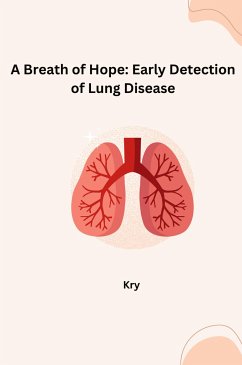
Molecular Aspects of Diesel Exhaust Exposure on Lung Health
Versandkostenfrei!
Versandfertig in 1-2 Wochen
44,99 €
inkl. MwSt.

PAYBACK Punkte
22 °P sammeln!
Diesel exhaust is a complex mixture of gases and particles that is generated from the combustion of diesel fuel. It is a major contributor to air pollution, particularly in urban areas, and is associated with a range of adverse health effects, including respiratory diseases, cardiovascular diseases, and cancer. The molecular aspects of diesel exhaust exposure on lung health have been extensively studied in recent years, with a growing body of evidence indicating that diesel exhaust exposure can have profound effects on the molecular processes involved in lung function and health. One of the ke...
Diesel exhaust is a complex mixture of gases and particles that is generated from the combustion of diesel fuel. It is a major contributor to air pollution, particularly in urban areas, and is associated with a range of adverse health effects, including respiratory diseases, cardiovascular diseases, and cancer. The molecular aspects of diesel exhaust exposure on lung health have been extensively studied in recent years, with a growing body of evidence indicating that diesel exhaust exposure can have profound effects on the molecular processes involved in lung function and health. One of the key ways in which diesel exhaust exposure affects lung health is through its impact on oxidative stress and inflammation. Diesel exhaust contains a range of reactive oxygen species and free radicals, which can induce oxidative stress and inflammation in the lung tissue. This can lead to damage to the DNA and proteins in the lung cells, and can contribute to the development of respiratory diseases such as chronic obstructive pulmonary disease (COPD) and asthma. Diesel exhaust exposure can also impact the molecular processes involved in lung development and repair. For example, studies have shown that exposure to diesel exhaust can impair the function of the cilia in the airway epithelium, which are responsible for clearing mucus and other debris from the lungs. This can lead to impaired lung function and an increased risk of respiratory infections. In addition to its effects on oxidative stress and inflammation, diesel exhaust exposure can also impact the molecular pathways involved in immune function and cell signaling. For example, studies have shown that exposure to diesel exhaust can alter the expression of genes involved in the immune response, and can activate signaling pathways that are associated with cancer development. Overall, the molecular aspects of diesel exhaust exposure on lung health are complex and multifaceted. The impact of diesel exhaust on lung health depends on a range of factors, including the duration and intensity of exposure, the composition of the exhaust, and individual susceptibility to the effects of air pollution. However, there is growing evidence to suggest that diesel exhaust exposure can have profound effects on the molecular processes involved in lung function and health, and that reducing exposure to diesel exhaust is an important public health priority. Strategies for reducing diesel exhaust exposure include implementing stricter emissions standards for diesel engines, promoting the use of alternative fuel sources, and reducing the overall reliance on diesel-powered vehicles and equipment.














